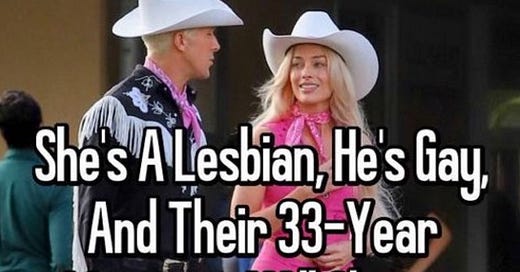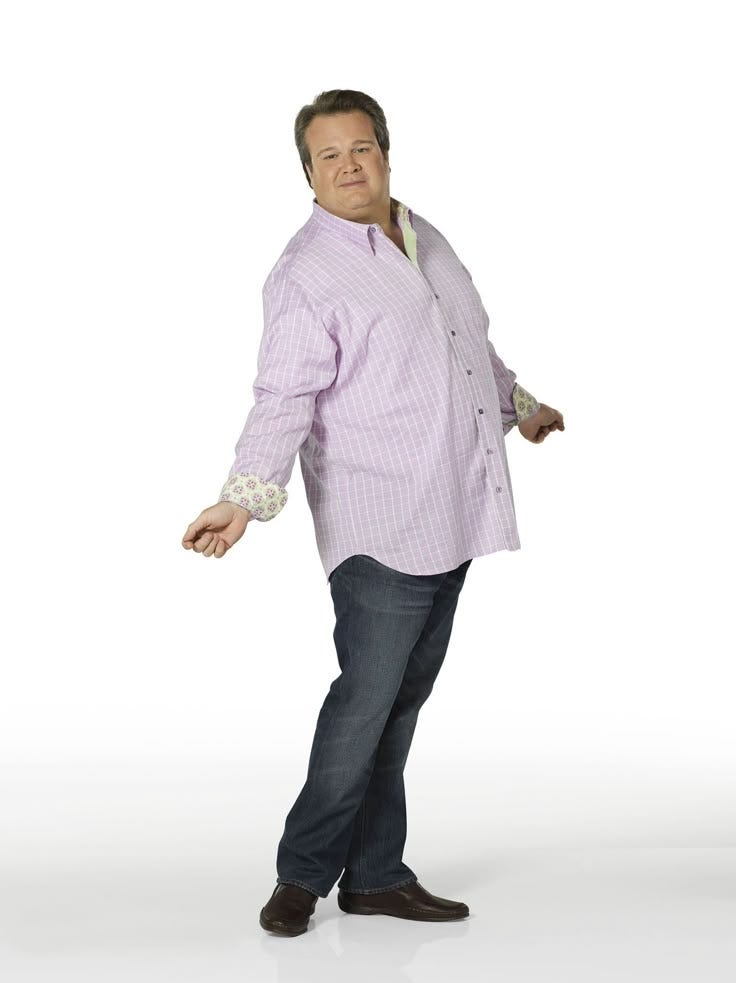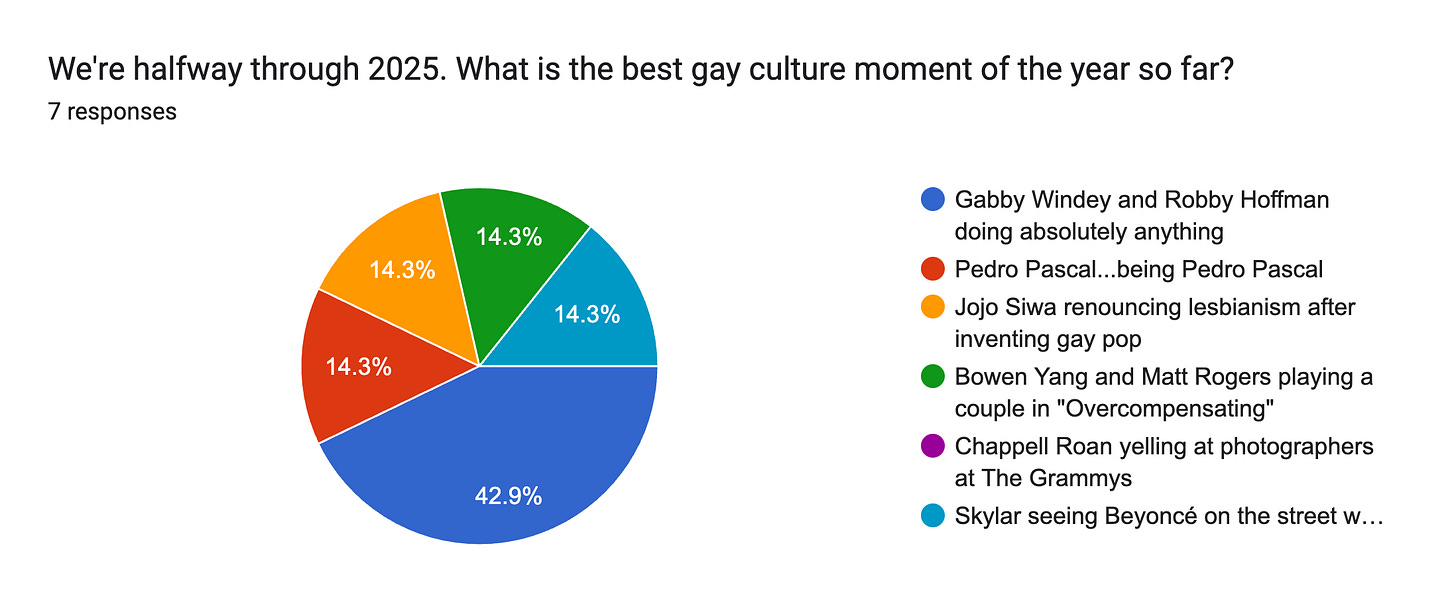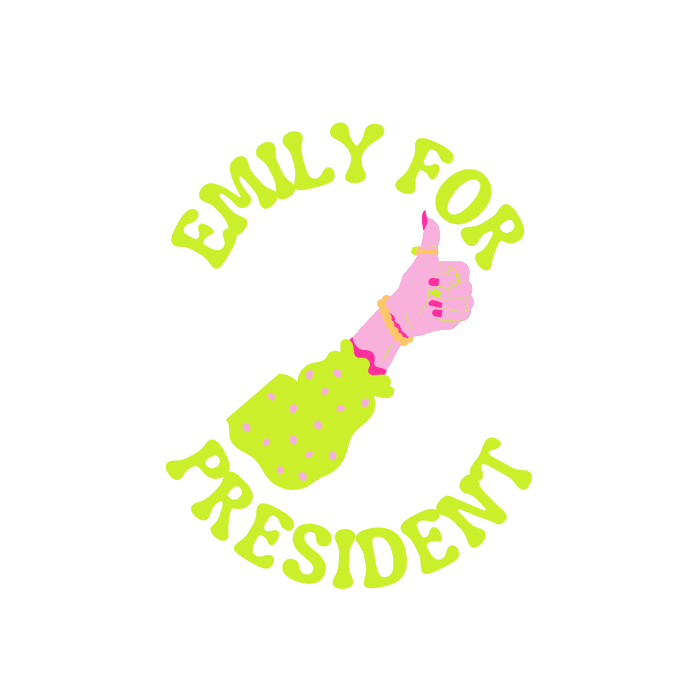Can We Offer You 10 Years of Gay Marriage in These Trying Times?
You can’t spell marriage without gay (well you can, but why would you want to?)
When E4P’s lawyer,1 Skylar Corby, and I decided to put together a panel marking the 10th anniversary of the Supreme Court’s decision in Obergefell v. Hodges (2015), we had to decide what tone we wanted to strike with our questions.
Did we want to maintain a celebratory tone, capturing both the joy brought about by the legalization of marriage equality and the joy of what is the happiest day of many couples’ lives? Did we want to find a way to honor the landmark decision while still recognizing how dire the threats against same sex marriage specifically and the LGBTQIA+ community in general are at this present moment? Was there a way to do both?
I feel like we’re doomed to spend the next three and a half years asking ourselves different versions of this same question: how much are we allowed to enjoy ourselves and our lives amidst daily suffering? I don’t have a good answer for that, but I do have some thoughts.
The majority opinion in Obergefell argued that bans on same-sex marriage violated the Fourteenth Amendment's Due Process and Equal Protection Clauses. In lieu of a subpar joke about Stephen Miller being dumb and the fact that due process is enshrined in two different Constitutional amendments, I’ll explain that the majority argued that any laws preventing marriage equality meant that there was unequal protection to citizens which could deprive them of the right to life, liberty, or property.
In his dissenting opinion, Chief Justice John Roberts argued that
same-sex marriage bans did not violate the Due Process Clause. Roberts also rejected the notion that same-sex marriage bans violated a right to privacy, because they involved no government intrusion or subsequent punishment. Addressing the Equal Protection Clause, Roberts stated that same-sex marriage bans did not violate the clause because they were rationally related to a governmental interest: preserving the traditional definition of marriage.
More generally, Roberts stated that marriage, which he proposed had a "universal definition" as union "between a man and a woman", arose to ensure successful childrearing. Roberts criticized the majority opinion for relying on moral convictions rather than a constitutional basis, and for expanding fundamental rights without caution or regard for history (X).
Roberts cited Dred Scott v. Sandford (1857) and Lochner v. New York (1905) as a warning for what happens when the Supreme Court decides in line with the social sentiments of the times. But both Dred Scott and Lochner restricted who Constitutional rights could be extended to—Obergefell expanded who was equally protected under the law.
More to it: Roberts’ opinion is not just homophobic but misogynistic. Same-sex marriage bans did not involve government intrusion, but “preserving the traditional definition of marriage” does? He used all of this fancy Constitutional language to perpetuate the idea that the key to a successful and loving relationship is (and my apologies to my parents reading this) fucking to have kids.2
With caution and regard to history, America’s narrative has been shaped by people fighting for access to the equality we have always preached about offering. As Representative Sarah McBride (D-DE) put it:
What is challenging about this moment is that we feel like we can’t see the light at the end of the tunnel. But you cannot tell me that the reasons for hopelessness now for our country are greater than the reasons for hopelessness for an enslaved person in the 1850s who had no reason to believe that an Emancipation Proclaimation was on the horizon. You cannot tell me the reasons for hopelessness now are greater for the reasons for hopelessness for an unemployed worker during the early days of the Great Depression. And you certainly cannot tell me that the reasons for hopelessness now are greater for the reasons for hopelessness for a closeted gay or closeted trans person in the 1950s who never knew of an America where they could live openly and authentically as themselves without violating the law.
They had every reason to give up, but they didn’t. They persevered, they summoned their hope, they changed the world, and they said to the United States of America—hit it.
There’s a saying going around that Dan Savage and the members of ACT UP crafted at the height of the AIDS epidemic that speaks to this idea of recognizing the struggle for progress when you’re in the thick of it: “We buried our friends in the morning, we protested in the afternoon, and we danced all night. The dance kept us in the fight because it was the dance we were fighting for.”
I say all of this because even at the epicenter of progress, forever tied to the existence of Obergefell, is that dissenting opinion attempting to invalidate it. Though it shouldn’t be, our movement towards change has always been slow and painful. But the fact that change has ever occurred at all is, I think, what we need to cling to when we can’t see the light at the end of the tunnel, when we need a reason to keep dancing.
Call me idealistic, but I feel it’s important to recognize all of this after this week in the hellscape. There is a valid reason to celebrate 10 years of marriage equality, and today, it starts with raising your middle fingers high to Chief Justice John Roberts.
Gay rights?
Brooklyn: GAY RIGHTS!
Blair, she/her, 27: And wrongs!
Abby, she/her, 26: Yes!!!!!
Laura, she/her, 34: Gay rights, gay wrongs, gay everything.
Susan, she/her, 27: Yes, but some of you are on thin ice.
Liz, she/her, 26: Slay. And a joke about gay wrongs as well.
Ilyssa, she/her, 22: Obviously.
What does marriage equality mean to you?
Brooklyn: It means that I can openly express my love for another and know my peers can do the same; that there are no limits to celebrating love. That there are no legal barriers to matrimony and that the government hasn’t dictated what constitutes a valid loving partnership. Marriage equality means that I can marry and not be uniquely privileged in doing so.
Selfishly, it would ruin the vibe of a wedding, knowing some of the most important people in my life couldn’t be afforded the same opportunity. It’s always been about the freedom to love.
Blair: Everyone can get married, regardless of sexual orientation or gender. It’s the right to sign those papers with anyone you want!
Abby: Freedom to LOVE without fear!!! The law sees all love as valid, equal, and worthy!!
Laura: That I, too, get to argue over what we’re having for dinner until one of us dies.
Susan: At the level of the law, it’s one of the few recognitions of our humanity as queer people that the government can provide. But at its core, marriage equality is a basic human right. Marriage as a concept has existed in various forms for the entirety of recorded history, and to deny anyone the opportunity to make that choice for themselves is unconscionable, theocratic, and fascist.
Liz: Any two adult human beings should be allowed to get married if they want to because that's their business, and things like gender, sexuality, and race have literally nothing to do with it at all?? Like it's so simple and yet...
Ilyssa: Equal rights and equal protection under the law! Love in law form.
Do you remember when the decision in Obergefell came down? If yes, what was it like to hear the news?
Brooklyn: Yeah. I do. I remember seeing newscasts of people lining the streets and celebrating. The news for me was bittersweet, in that I was sharing the excitement but confused that it had taken this long. It felt like way too late with way too much damage done. So it felt like a celebratory thing but also the knowledge that a lot of healing would need to take place.
Blair:
Laura: Heart-warming and affirming.
Susan: I was just a little baby gay in a small midwest town at the time, and it was the most hopeful I had felt for our country and community in a while. We were coming off the heels of the Colorado cake lawsuit (pre-Supreme Court) and in the midst of Donald Trump’s campaign for the 2016 Election, and it was a time of uncertainty. Obergefell was a light in an expanse of darkness and a little glimmer of hope for queer rights in the US.
Liz: Yes!! I just remember all the nationwide celebrations that day that lasted for weeks afterwards. And the lines of people getting married at courthouses! There was so much joy and love everywhere.
Ilyssa: Having grown up in New York, it was the first time I realized my family and my community were unrepresentative of the rest of the United States. I think prior, I took the protections in my home state for granted and assumed that to be the norm everywhere. I remember celebrating and learning for the first time about how important the decision was for people across the country.
If you’re an ally to the community, what are you doing to stay informed / take action as the LGBTQIA+ community (and specifically trans folks) is discriminated against?
Brooklyn: I try to follow a lot of LGBTQIA+ news pages, so it shows up on my feed often. I try my best to show support for local drag queens and LGBTQIA+ organizations. I work with some of the older generation and try my best to clock some of their misunderstandings as they happen. I could do more, and I should. I’m looking for more ways in my area, specifically.
Blair: I have my girls (like E4P!) to keep me in the loop. I wish I knew how to do more outside of supporting LGBTQIA+ businesses and people and voting for candidates that support LGBTQIA+ rights.
Liz: First and foremost, I listen to what my friends in the community have to say about their experiences and what they care about that's happening. At this point, it seems like things are changing daily, so it can be hard to stay updated. I also make donations to organizations that support the LGBTQIA+ community, such as the Transgender Law Center and the National Women's Law Center.
Ilyssa: Door knocking, phone banking, and clinic defense!
Do you have something that is giving you hope for the future of queer people right now? If so, what is it?
Brooklyn: It’s hard. I would say hope lies in simply the strength of the LGBTQIA+ community united, and that there are queer individuals and allies resisting. That gives me hope.
Blair: How accepting that some parents are of their kids and sexuality as they grow up.
Abby: THE NEXT GENERATION!!! Watching queer kids grow up with support and love—they are more open, unapologetic, true to themselves!! It gives me hope for the future. Also more queer people in positions of power and making decisions.
Laura: The astounding popularity of queer music artists.
Susan: I’ve seen a lot of the younger generation becoming more vigilant about staying informed on pertinent issues and willing to go out and actually fight for our rights.
Liz: I try to remember that while there are many people trying to tear the community down, I believe that there are even more people who see, love, and support queer people, and even if those people aren't the ones in power, I have hope that with perseverance we can make change.
Ilyssa: Mainstream queer music.
Is there anything else you'd like to add?
Brooklyn: Gay rights!!!!!!!!!!!!!!!!!!!!!!!!!!
Blair: It was hard to pick one moment of gay culture, and I would like it to be known that I also saw Beyoncé.
Abby: Nope! Just HAPPY PRIDE
Laura: 💜
Susan: Fuck “traditional” marriage !!
Liz: Be who you are....for your PRIDE <3
Ilyssa: GO GAY
Skylar is making a hypothetical invite list for her very gay wedding to her hypothetical wife. Give the best reason you can that you should be on it — outfits, entertainment, skills, etc!
Brooklyn: Girl, I have no talents. How about undying love, affection, and friendship as a qualification?
Blair: I promise to wear my cutest outfit and to not bring a straight man!!
Abby: I'm one of those "hype" people that get people on the dance floor LOL
Laura: Maybe I’ll be a judge by then and I can legally wed you 👩⚖️
Susan: I did take a floral design class in college, so I could make the wedding arrangements for a discounted price….
Liz: Why are we talking about me? This wedding is about Skylar and her super-hot wife. I'm just here to be the ultimate hype woman and to have an excuse to buy a fire outfit.
Ilyssa: I'll be the gay rabbi.
Emily: The way I’m going to run that wedding like the Navy to make sure my Virgo bestie can relax knowing her dream day is going to go off without a hitch…that’s what I call allyship, bitch!!!!
Thank you so much to Skylar for wanting to build this panel here and to everyone who participated!!! I am deeply fascinated by the fact that no men partook in this panel, and I immediately want to launch a second inquiry into why exactly that is…watch this space.
Anyway—happy Pride!!!
NYC VOTERS: Early voting started on Saturday and runs until Sunday, June 22nd. Check your polling site here as it may vary between the early voting period and Election Day, which is next Tuesday, June 24th!!!! And remember—DON’T RANK CUOMO FOR MAYOR!!!!! I’m tired of ugly mayors who are bad at their jobs!!!!
She has graduated from law school but has not yet been admitted to the bar, so, for all intents and purposes, this is a joke. Anything said here should not be interpreted as legal advice…Please don’t sue me.
But please—tell me more about the male loneliness epidemic.









